What does someone have to do to get fired around here? That is the question you here often concerning the front office of the Colorado Rockies as another promising start to a season has turned sour once summer begins.
Rockies owner Dick Monfort stated recently in an interview with the Denver Post, “I don’t know how our record got be where it is”, 40-55 and fourth-place in the NL West, 13 games out of first. That statement exposes what many baseball analysts and fans have known for a long time, Monfort has no clue how to run a major league franchise.
The Rockies have talent on the team such as two perennial MVP candidates in Troy Tulowitzki and Carlos Gonzalez, Nolan Arenado who was leading the National League third baseman in All-star votes before he was injured, All-Star outfielder Charlie Blackmon, a slugging catcher named Wilin Rosario, and a double-digit winner in left-hander Jorge De La Rosa.
Despite the talent, the Rockies continue to struggle to stay out of the basement. Fans and media have demanded that the organization step up to the plate and address the problems that exist in order to get the franchise moving forward.
What the organization has offered instead are a handful of excuses that range from the usual small market - big market payroll dilemma to the owner throwing up his hands and saying he has no clue what is going on. It's the last answer that leaves everyone in and around the franchise frustrated and wondering if there is anyone competent at the wheel steering the franchise.
Now Tulowitzki and Gonzalez have begun to voice similar doubts about the direction of the franchise and have expressed a willingness to be traded to a contender by the July 31 deadline. Tulowitzki has mentioned that he did not want his career to end up like retired Rockies great, first baseman Todd Helton who spent his entire 17 year career with the team while playing in just four winning seasons and making it to the playoffs only twice. If team leaders are expressing doubts about the organization's ability to build a winner, its clear the franchise is crumbling under the weight of it’s own ineptitude.
At first glance injuries would appear to be the culprit this season with 10 Rockies having been on the disabled list prior to the All-Star break. The list included four-fifths of the starting rotation (Brett Anderson, Jose Chacin, Tyler Chatwood, and Jordan Lyles) along with All-Stars Carlos Gonzalez (tumor in index finger) and Michael Cuddyer (fractured shoulder), and Nolan Arenado (broken finger), who was leading the All-Star voting at third base when he went on the disabled list in late May.
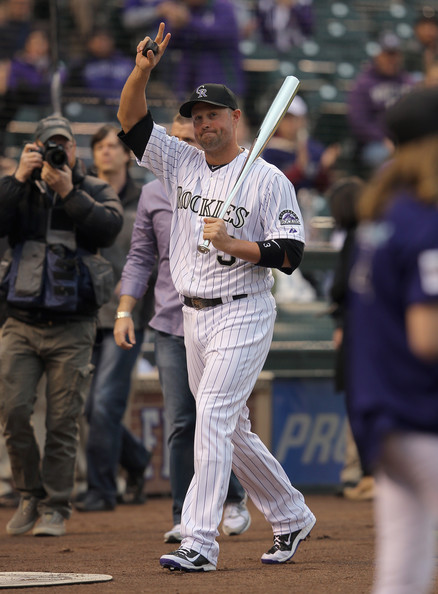
Injuries happen every year to teams, but not all go into season ending nosedives once they occur. The Rockies bout of injuries have exposed the lack of roster depth and an inadequate farm system as major weaknesses for this organization. Costless agent veterans who come off the bench to plug holes along with major league ready talent in the minors are relied upon to keep teams above water until the injured starters return to action. The Rockies have had neither for a number of seasons. Bad decisions in costless agency and the amateur draft have come home to haunt the Rockies.
The man who Monfort hired in 1999 to build a "winning" organization is Dan O'Dowd, whom Monfort has repeatedly described as the "best general manager" in baseball. O'Dowd was hired away from Cleveland where he served as the Indians assistant general manager.
Since O’Dowd’s first full season with the Rockies in 2000, their record is 1,103-1,261 (.467) with no division titles, two playoff appearances as a wild card and one trip to the World Series in a miracle 2007 season that required a historic finish by winning 21 of their last 22 games. The Rockies lost the World Series in a four-game sweep by the Boston Red Sox.
As you go deeper into the numbers the uglier the picture gets for the kind of organization Monfort has allowed O’Dowd to put together. The Rockies have finished last in the National League West five times, fourth place six times, third place twice, and second place twice. They have had only four winning seasons and have never won 100 games in a season. They managed two 90 wins seasons, two 80 wins seasons, eight 70 wins seasons, and three 60 wins seasons. Add it all up and it equals a long history of mediocrity.
O’Dowd began his tenure by reshaping the roster in order to move the Rockies away from their “Blake Street Bombers” days and instead focus on a team that utilized pitching, defense, and speed to win ballgames. He began the transformation by trading away stars Dante Bichette and Vinny Castilla, who had been with the team since it's inaugural year of 1993. He made several more trades over the following year that earned him the nickname “Dealing Dan.”
In 2000, O’Dowd made two of the worst costless agent signings not only in franchise history, but in major league history when he signed pitchers Mike Hampton (eight years, $121 million) and Denny Neagle (five years, $51 million) to record breaking contracts. Both pitchers not only failed to come close to fulfilling their mammoth contracts, but strangled the Rockies budget with dead money on the books for several years to come after they had left the team. Hampton lasted just two seasons, posting a 21-28 record while Neagle lasted three seasons with a 19-23 record.
With the disastrous contracts of Hampton and Neagle hampering the team financially, O’Dowd shelved his original plan and began his second roster overhaul, going with a team filled with aging (cheap) costless agents acting as fillers until younger talent in the minors were ready to be brought up. In 2006, "Todd and the Toddlers" debuted as O’Dowd surrounded the face of the franchise, first baseman Helton, with a collection of players who had three seasons or less of MLB experience. The Rockies ended the season in last place with a 76-86 record.
The following year the Rockies had their first 90 win season. The Rockies found the right mix of veteran costless agents who brought leadership to the roster and talented young players beginning to mature. It seemed that the Rockies had had finally discovered the right formula for achieving success as they reached the postseason as a wildcard for the first time since 1995, ultimately reaching their first World Series.
The Rockies drafted and developed players such as shortstop Tulowitzki, outfielder Matt Holliday, and pitchers Jeff Francis and Ubaldo Jimenez. All four were key parts of the Rockies World Series run.
After the 2007 season the Rockies were now looked upon as legitimate contenders for the first time in their history. Instead of building upon the World Series season, the Rockies regressed as they suffered the loss of several important pieces of their 2007 team out of the bullpen, starting rotation, and off the bench to costless agency. Those losses combined with lackluster costless agent signings weakened the quality of their depth and sapped the strength of their bullpen. The Rockies ended up having a deeply disappointing season, finishing the year in third place with a 74-88 record, 10 games back of the first-place Dodgers.
Prior to the start of the 2009 season, O’Dowd traded Holliday to the Oakland Athletics for closer Huston Street and a Triple-A outfielder by the name of Carlos Gonzalez. It was a trade that would end up being one of the rare wins for the organization as they acquired the talented Gonzales who ultimately would be paired with Tulowitzki to form the backbone of the Rockies.
Street ended up being a key piece for the Rockies during 2009 season as the team would rebound with another late season charge, recording their second 90 win season and a wild card berth. A late season collapse in 2010 took the Rockies out of the playoff chase and the team has yet to recover. Bad drafts combined with trades that fell flat have squandered the progress that the Rockies made between 2007-2010.
O’Dowd’s sour relationship with Jimenez, who was off to a terrible start in 2011, resulted in a trade at the deadline. Jimenez, a starting pitcher for the 2009 NL All-Stars and owner of the Rockies only no-hitter, was sent to the Cleveland Indians for pitching prospects Drew Pomeranz and Alex White in 2011.
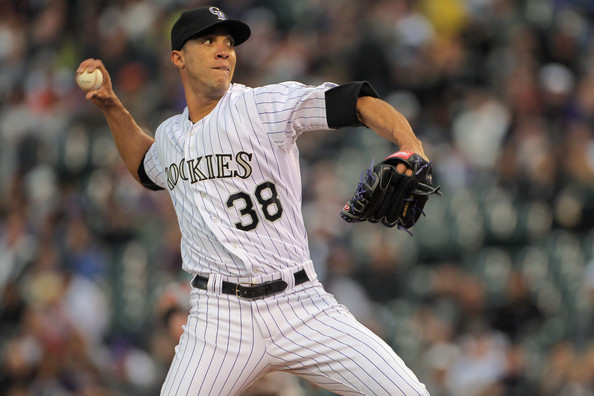
Pomeranz, who was the key piece of the Jimenez trade, went 4-14 with a 5.23 ERA in parts of three seasons. Pomeranz’s failure to provide any kind of production for a faltering pitching staff resulted in his trade to the Oakland Athletics for often-injured starter Anderson.
This season, Anderson is again on the disabled list after only appearing in three games with a record of 0-3 and a 3.60 ERA. Not the results the Rockies had hoped for from a pitcher they viewed as being at the front of their rotation. Anderson is an example of the Rockies placing hope above reality when evaluating players. Anderson has been injury prone in his five prior seasons in Oakland but the Rockies still placed the hopes of their pitching staff in Anderson remaining healthy.
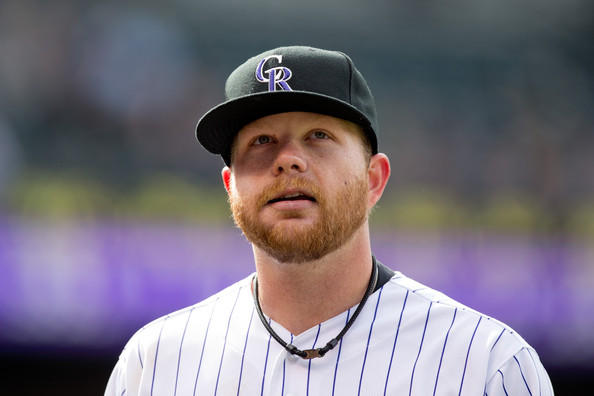
With injuries hitting the team hard in the starting rotation the Rockies have had to rely on prospects to fill in until the starters can return. Those prospects have been failing, causing the Rockies bullpen to carry such a large workload that they too have begun to collapse under the strain.
Two of the Rockies pitching prospects drafted in recent years, 2009 first round pick (11th overall) Tyler Matzek (1-4, 4.97 in seven starts) and 2008 first round pick (25th overall) Christian Friedrich (0-3, 9,45 in three starts) have been called up by the Rockies as injury replacements. Matzek is still in the rotation while Friedrich was sent back to Triple-A Colorado Springs.
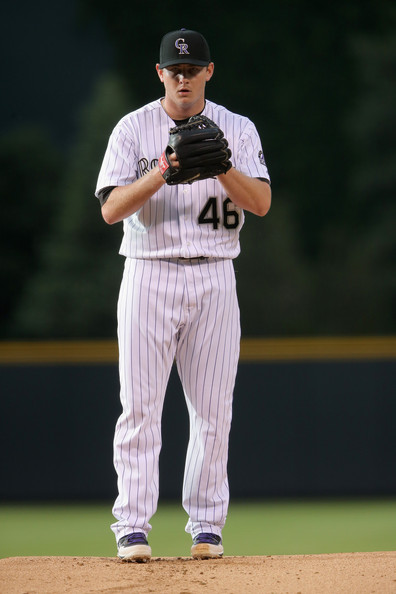
Matzek made his major league debut on June 11 and it still remains to be seen what kind of pitcher he will become. However, Friedrich made his major league debut in 2012 and has a record of 5-11 with a 6.61 ERA. Friedrich’s recent trip to the big club saw him average less than five innings per start.
It would appear that Friedrich will end up as another first round bust for the organization. When you look at some of the pitchers who the Rockies passed over to take Friedrich, you begin to see the deficiencies in the Rockies scouting and development department. The Rockies passed over their own Jordan Lyles who was taken 38th overall by the Houston Astros and Lance Lynn taken 39th overall by the St. Louis Cardinals. Before landing on the disabled list earlier this season, Lyles was having a breakout season while posting a 5-1 record with a 3.52 ERA. Lynn is 10-6 with a 3.14 ERA this season and has a career mark of 44-24 with a 3.67 ERA in 105 games (83 starts).
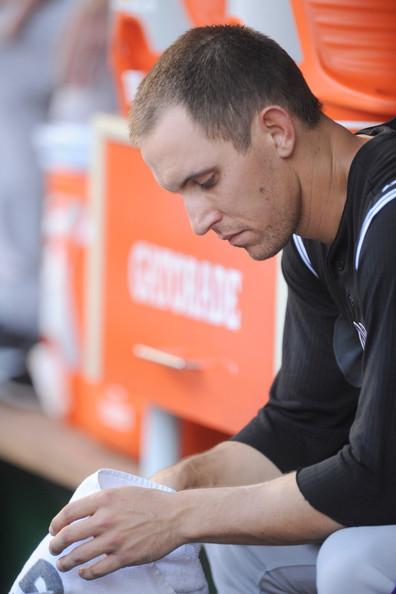
The Rockies decided that Matzek was the best choice in 2009 and passed over right-hander Shelby Miller, who fell to the Cardinals at the 19th spot. Miller made his debut for the Cardinals in 2012 and has amassed a career record of 23-16 with an ERA of 3.37.
At the All-Star break the Rockies 25-man roster consisted of only 10 homegrown players of which four are pitchers. Monfort has repeatedly stated that the Rockies have to be a team that is built upon the draft with 18 homegrown players on the roster. In the end it's just numbers that Monfort is throwing out with no real plan to back it up. Without a solid farm system producing major league ready players on a regular basis a team like the Rockies can’t overcome an injury plagued season like 2014 has become. Instead, the Rockies end up throwing young players who aren’t major league ready into the fire with negative consequences for both the team and the player.
Public dissatisfaction over O'Dowd's performance has been building through the years but have been the loudest since the disaster that was the 2012 season. Nearly 30 games under .500 and in the basement of the NL West, the Rockies were reeling from the implosion that their pitching staff once again experienced. Unable to implement any solutions, O'Dowd came up with the idea of a four-man rotation with a 75-pitch count. They would provide the starter with a piggyback who would follow with a 50 pitch count. In essence, two starters would be assigned per game.
The idea was implemented over the objection of manager Jim Tracy and was ridiculed around baseball. Monfort and O'Dowd embraced it as the cure for pitching at altitude, completely ignoring the fact that the Rockies pitching staffs who made it to the postseason in 2007 and 2009 were a normal five man rotation which had success. It was a lack of talent, not Coors Field or the altitude that was causing the pitching to suffer so badly. In the end, the piggyback experiment failed.
As the calls for O'Dowd's dismissal increased, Monfort decided not to fire O'Dowd. Instead he essentially shuffled the deck chairs on the sinking SS Rockies, giving O'Dowd a new title (Executive Vice President/Chief Baseball Officer & General Manager) and creating a new position for their Assistant General Manager Bill Geivett, who would now become Sr. Vice President of Major League Operations/Assistant General Manager. Geivett was handed day-to-day operation of the team and also was given much of the duties that Tracy had. This furthered the alienation of the popular Tracy which had begun during the fiasco of the pitching experiment. Too make matters worse, Geivett was placed in an office next to Tracy's inside the clubhouse. Tracy was essentially left in control of the lineup only.
It was a humiliating situation for Tracy that ended with him walking away from the Rockies at the end of 2012 and in the process leaving $1.4 million on the table, his pay if he managed the team in 2013.
Monfort had left O'Dowd as general manager in charge of the minor league system, to include drafts, with final say on all player moves at every level. Monfort had succeeded in alienating his manager and creating more chaos in the front office. The criticism Monfort was trying to quiet only grew louder.
Monfort answers critics who demand the firing of O'Dowd by saying that nobody can do a better job under the circumstances that are presented by a small market team. When you compare O’Dowd’s record of achievement to another GM hired around the same time by a team with a similar payroll you can clearly see that competent management with a clear plan can compete with the big budget teams like the Los Angeles Dodgers and New York Yankees.
Billy Beane was hired by the Oakland Athletics following the 1997 season and has put together a team with a record of 1,455-1230 (.542). During his tenure the A’s have won the American League West six times, have been a wild card entrant into the postseason once, and have been to the American League Championship Series once. The A’s have had 10 winning seasons with two of them having topped the 100 win mark.
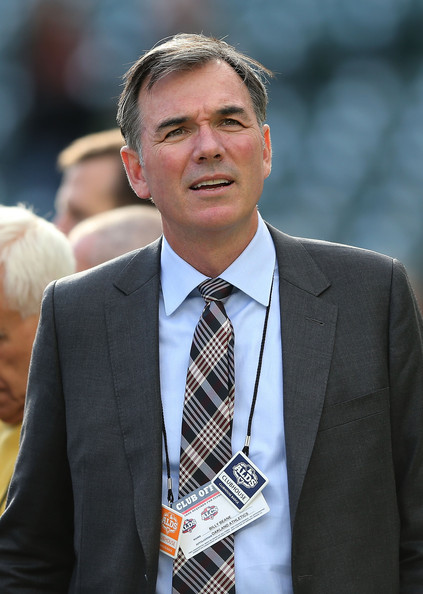
Beane has achieved all of this while having one of the smallest payrolls in the majors (estimated $88,013,400 that ranks 22nd in MLB. He has also been hamstrung by the lack of a revenue generating stadium that just about every other MLB franchise has. The A’s currently share the 48 year old O.co Coliseum with the NFL's Oakland Raiders .
Despite the handicaps that confront Beane, he has been able to build the A’s into the best team in the majors through intelligent drafts (right-handed pitcher Sonny Gray ( 9-3, 2.97), shrewd trades (All-Star third baseman Josh Donaldson), and picking up top talent in costless agency without strangling the budget with terrible contracts (left-handed pitcher Scott Kazmir and outfielder Yoenis Cespedes).
The Rockies reside in the 19 year old Coors Field that is considered the "Jewel of the Rockies", a stadium they are the sole occupants of. O’Dowd also works with an estimated 2014 budget of $90,604,071 that ranks 21st in the majors.
Budget constraints are often cited by Monfort as the reason the Rockies continually struggle trying to compete with high-dollar clubs. Yet, when you take a look at the current standings you will see the Athletics (59-36) in first place in the AL West with the best record in baseball and the Milwaukee Brewers ($104,893,967) with a payroll that ranks 15th in baseball sitting in first in the NL Central at 53-43.
Now with the Rockies two best players, Tulowitzki and Gonzalez, talking openly about their disgust at the direction of the organization and how the constant losing is wearing upon them, the Rockies are faced with a malaise that has begun to eat away at the team's confidence and threatens to tarnish the franchise with a reputation that will never attract quality costless agents. When you have hitters who have traditionally loved playing in Colorado starting to talk about wanting out, the warning signs are flashing as brightly as a neon sign that the franchise is sinking.
Monfort's excuses for O’Dowd’s performance and why the Rockies haven't succeeded are long. He recently told a fan that if he cleaned out the front office and brought in somebody else it would "negatively impact the culture of the Rockies." When a franchise has a losing culture doesn't it make sense to change it? Another example of how out of touch Monfort has become.
Rockies fans continue to fill seats, although it's a far cry from the sellouts that used to accompany the Rocktober days of 2007 and 2009. After 48 home games this season, 1.6 million (9th in MLB attendance) have bought tickets to games despite the poor performance on the field. Unlike fans in other cities who abandon their teams when times are bad, Rockies fans continue to show.
The fans' attendance is where Monfort has decided to focus his attention by developing Coors Field into an attraction all it’s own. He has recently invested the club’s money into a 38,000 square foot party area that sits atop the right field deck. The “Rooftop at Coors Field” serves a dual purpose as an entertainment distraction and a way to mask empty seats from the drop in attendance. Monfort is betting on Rockies fans continuing to come out just for the ambience of the stadium.
The stress caused by the failing state of the Rockies franchise is beginning to show on Monfort. Speaking with Mark Kiszla of the Denver Post, Monfort said in response to a question about how he has been, “"Awful. Just awful. It's the worst I've ever been in my life. It's because of baseball I don't sleep at night."
Monfort has taken to lashing out at fans who complain about the state of the team. He recently sent an angry email to a fan who wrote about his dissatisfaction of the team’s performance on a survey card at Coors Field. Monfort wrote the fan saying. “If product and experience that bad don't come!” The email is a sign that the owner may be melting down as quickly as the team.
It's time for Dick Monfort to restrain his impulse to lash out at the fans and the media who are calling him on the carpet for the mess the organization finds itself in. The first step in fixing the problem is for Dick Monfort to take a long look in the mirror and realize that the man staring back at him has been the main obstacle in fixing the problems hampering the succes of his franchise. If Monfort truly cares about winning like he says he does then he will take the necessary step to clean out his front office and install someone who knows how to win. Only then will he be able to sleep again at night.
| Season | Record | PCT | Results |
| 2000 | 82-80 | .506 | 4th in NL West |
| 2001 | 73-89 | .451 | Last in NL West |
| 2002 | 73-89 | .451 | 4th in NL West |
| 2003 | 74-88 | .457 | 4th in NL West |
| 2004 | 68-94 | .420 | 4th in NL West |
| 2005 | 67-95 | .414 | Last in NL West |
| 2006 | 76-86 | .469 | 4th in NL West |
| 2007 | *90-73 | .552 | 2nd in NL West/Wild Card/NL Champs/Lost W.S. 4-0 to Boston Red Sox |
| 2008 | 74-88 | .457 | 3rd in NL West |
| 2009 | 92-70 | .568 | 2nd in NL West/Wild Card/Lost LDS 3-1 to Philadelphia Phillies |
| 2010 | 83-79 | .512 | 3rd in NL West |
| 2011 | 73-89 | .451 | 4th in NL West |
| 2012 | 64-98 | .395 | Last in NL West |
| 2013 | 74-88 | .457 | Last in NL West |
| 2014 | 40-55 | .421 | 4th in NL West as of All Star Break. |










































